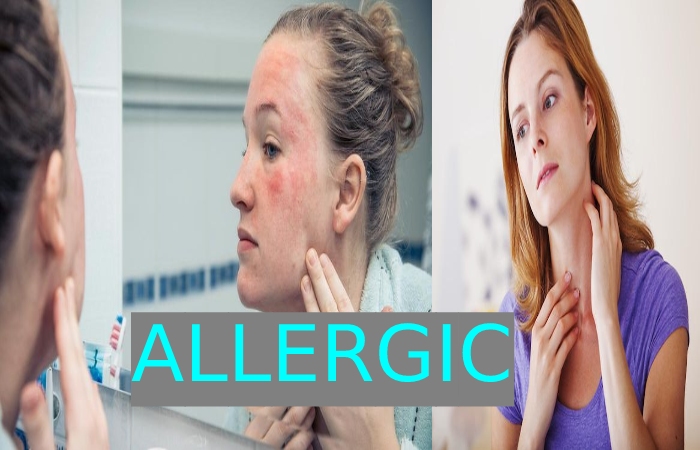Table of Contents
About Allergies
Allergies are prevalent. Touch more than 1 in 4 public in the UK at some point in their lives. They’re prevalent in broods. Approximately allergies go away as a child gets older, although many are lifelong. Adults can grow allergies to things they were not before allergic to.
An allergy can irritate and touch your everyday activities, but most allergic reactions are mild and containers below regulator. Severe reactions can irregularly occur, but these are unusual.
Common Allergies
Substances that cause allergic replies are named allergens.
The More Common Allergies Allergens Include
Grass and tree pollen – an allergy to these is known as hay infection
- powder louses
- Animal dander, tiny flecks of skin or hair
- Food – mainly nuts, fruit, crustaceans, eggs and cows’ milk
- Insect bites and stings
- Medicines – including ibuprofen, aspirin and sure antibiotics
- Latex – used to make approximately gloves and condoms
- Mould – these can include small announcement particles into the air that you can respire in
- Household chemicals – including those in cleaners and hair dyes
- Most of these allergens are usually inoffensive to people who are not allergic to them.
- Symptoms of an allergic reaction
Allergic reactions usually happen speedily within a few minutes of introducing an allergen.
They can Cause in Allergy
Allergies occur once the body’s secure system reacts to a particular substance as though it’s harmful.
It’s not strong why this happens, but the most significant individuals precious have a family history of allergies or have thoroughly related situations, such as asthma or eczema.
The quantity of people with allergies is increasing every year:
- sneezing
- a runny or impassable muzzle
- red, itchy, watery eyes
- wheezing and coughing
- a red, itchy rash
- worsening of asthma or eczema symptoms
Most allergic responses are mild but irregularly. A direct reaction called anaphylaxis or anaphylactic shock can occur. This is a medical emergency and needs urgent action.
Getting Help for Allergies
See a GP if you reason you or your child strength have had an allergic response to something. Other situations can also form the suggestions of an allergic response. A GP can help determine whether likely you have an allergy.
If they think your strength have a mild allergy, they can offer advice and treatment to help manage the condition.
If your allergy is particularly severe or not robust what sensitive to, they may refer you to an allergy specialist for testing and advice about action.
Find out more about allergy testing.
How to Manage an Allergy
In many cases, the most authentic way of supervision an allergy is to avoid the allergen that causes the response whenever possible.
For example, you should check a food’s ingredients list for allergens before eating it if you have a food allergy. There are also numerous medicines available to help control symptoms of allergic reactions, including:
Antihistamines in Allergy
These can when you notice the symptoms of a response, or before being exposed to an allergen, to stop a reply from occurring decongestants – tablets, capsules, nasal sprays or liquids that can serve as a short-term treatment for an impassable nose lotions and creams, such as moisturising creams – these can condense skin redness and itchiness
Steroid Medicines in Allergy
Sprays, drops, ointments, inhalers and tablets that can help reduce redness and swelling caused by an allergic reaction. For people with very severe allergies, immunotherapy may.
This involves the allergen in a controlled way concluded several years, so your body gets used to it and does not react to it so severely.
The reasons for this are not understood, but 1 of the main theories is that living in a cleaner, germ-free situation reduces the number of germs our immune system has to deal with. It’s thought this may cause it to overplay when it comes into contact with harmless substances.
Allergy
The body’s resistant system is a reaction fashioned when exposed to a normally harmless substance.
Sensitivity skin in Allergy
For example, the caffeine in a cup of coffee might cause life-threatening symptoms, such as palpitations and tremble.
Intolerance for Allergy
A substance causes disagreeable symptoms, such as diarrhoea, but not the immune system. People with prejudice to certain foods can typically eat a small amount without having any problems.
The Outlook for People with cold abscesses or Pimples
Equally, unconscious wounds and reactions can address with simple at-home treatments. However, severe cases might require a treatment medication from a doctor or dermatologist.
Consult a health care expert if your cold sores cause severe itching or burning or if you have swollen involvement glands and consume a fever. You must also discuss if OTC treatments aren’t actually against your acne.
However, to prevent future cold sores, avoid skin-to-skin communication with other people and consider your triggers. Adopting healthy skincare habits, such as washing your face after workouts and cleaning your makeup brushes, can help to prevent future acne outbreaks.
Conclusion
Allergies happen when your immune system responds to an external substance — such as pollen, bee venom, or pet dander — or a food that does not cause any reaction in most people. Instead, your immune system produces substances known as antibodies.
The harshness of allergies differs from person to person and can choose from minor irritation to anaphylaxis — a potentially life-threatening emergency. Whereas most allergies can’t be cured, treatments can help relieve your allergy symptoms.
Related searches:
[food allergies]
types of allergy
allergies treatment
seasonal allergies
allergies symptoms
common allergies
pollen allergies
seasonal allergies symptoms
allergies pills
food allergies
allergies symptoms
types of allergy
seasonal allergies
allergies treatment
what are the 10 most common allergies?


